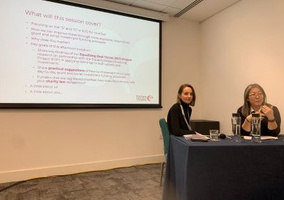Less than 5% of funding from the UK’s largest grantmakers in 2022-23 went towards tackling injustice, according to new research.
The third edition of Funding Justice, published today by the charity Civic Power Fund and consultancy the Hour is Late, analysed over 20,000 grants totaling more than £935m made in the 2022-23 financial year from 84 funders.
It found that 4.5% of funding went towards work to tackle injustice and 0.2% was directed to community organising work in 2022-23, compared to 5.7% and 0.3% the year before.
Social justice grants continued to be unevenly distributed across the country with London receiving more per capita funding than any other region, researchers found.
The report also identified a lack of consistent funding with few organisations receiving funding over the last three years recorded in the three editions of the report.
Unequal distribution
Researchers found that most social justice funding went to projects at the national level instead of grassroots communities.
Of the money awarded locally, London continued to receive the most funding on a per capita basis with £411 in grant funding per 100 people.
Meanwhile, charities in the East Midlands, East of England, South West and South East regions continued to receive the lowest amounts of per capita funding.
The 3,871 grants analysed in the report were distributed to 2,238 different grantee organisations, with a median grant size of £15,000.
Lack of repeat funding
The latest report, which also analysed the grants collected across the three years of the research so far, revealed that almost half of the grants (49%) in 2022-23 were for 12 months or less.
Over the past three years, some 46% of grants supported either two or three years of activity with 4.7% providing more than three years of support.
Of the 2,238 different organisations receiving social justice grants in 2022-23, 60% received a grant in one of the three years for which it has data.
Some 26% had received a grant in two of the three years while 13.7% had been funded in all three editions of the report.
“This lack of repeat funding contrasts with what we heard from funders completing our survey, where nearly four-fifths of the respondents reported that they had supported the same grantee organisation for five years or more,” the report states.
Related articles












